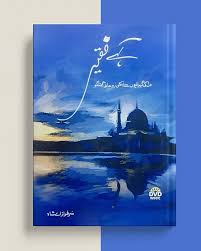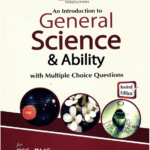Description
Lahasil” is among the highly popular Urdu novels created by the widely acclaimed Pakistani author Umera Ahmed. Due to a very reflective and emotional nature of her writing, the author often uses moral and spiritual themes. “Lahasil” is no different.
Title “Lahasil” means “unattainable” or “fruitless,” and the novel explores the battles that its characters live from the inside as they face the void that encloses their lives.
Summary Overview:
1. Plot Summary:
This novel has two parallel storylines:
Khadija Noor is a practicing woman who conducts her life with simplicity and faith and adheres to sound moral values. She never compromised her faith and gave up materialism despite all the hardships and tried living a rather simple life. A change in the concept of submission is well portrayed, and through the reflection of her journey, it has also highlighted how inner peace comes into being by living life based on faith and values.
Huma Nawaz, on the other hand is glamorous, rich, and famous. In fact, in this world which has too much focus on materialism, fame, and success, she wants everything but ends up spiritually bankrupt and feeling unfulfilled. She represented how glitz, glamour, and life may be “lahasil”-unattainable for finding happiness and peace.
Although both characters experience turmoil of emotions throughout the novel, Huma’s life of indulgence is dovetailed with Khadija Noor’s life of spiritual richness, that may eventually be their crossing and awakening for Huma to realize that material gains are but an illusion of fleeting gains.
2. Themes:
One of the most important themes in “Lahasil” is the difference between material success and spiritual fulfillment. The novel shows how one can be totally well-equipped for material life but will always feel spiritually bankrupt, while those with little material wealth feel very rich and fulfilled in their connection with God.
There is earthly love and heavenly love, and this novel includes all dimensions of that love. Characters do walk through the character’s line of sacrifices and loss, but submission to higher purpose and giving sacrificial love serves greater fulfillment.
Self-realization and redemption: all throughout the novel’s progress of narration, the characters, especially Huma, come to undergo self-realization. The narrative brings into focus the very idea of redemption, as always being an option, if done with introspection, change, and finding a more valuable existence than mere material wealth.
3. Character Development:
Khadija Noor is the epitome of patience, faith, and humility. While life was tough, she never gets weak in her belief that God is the planner, and hence there was hope amidst adversity. Her personality stands for inner power, where success happens not with material wealth but with the right spiritual being.
Huma Nawaz is just the complete opposite. Although her life is picturesque, filled with wealth and fame, it feels worthless. In her meetings with Khadija Noor, Huma’s transformation from a life geared toward outer success to seek inner peace undergoes powerful change.
4. Philosophical Musings:
Satisfaction and Appreciation: Umera Ahmed employs the character of Khadija Noor to elucidate how appreciative gratitude brings happiness by not seeking more but being content with what one has.
The Novel Depicts: Futile Ambitions in the World The novel has portrayed the futility of fame, power, and wealth as well because both “lahasil” (unattainable) on this earth can never produce true happiness and peace of life. Umera Ahmed used Huma’s dissatisfaction with her privileged life to critique the hollowness of materialism.
Significance of Faith in Life: The novel has delivered a strong message about faith. The novel depicts that faith is the anchor that can deliver meaning to life and without it even the most prosperous lives could feel empty.
Conclusion:
“Lahasil” has been a poignant narration of the human existence, striking the balance between success and peace within one’s lifetime. Umera Ahmed skillfully gets into the two narratives to offer a reflection deep into life’s purpose, its fulfillment, and one’s repute at success.
It is a treasure, which resonates the universal common human experiences of self-realization, the search for happiness, and the journey towards spiritual awakening. “Lahasil” is not only a novel but a meditation on life’s deeper truths.










Reviews
There are no reviews yet.